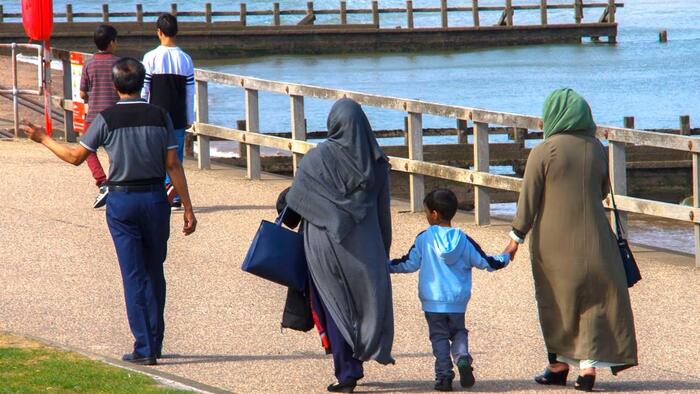In recent years, demographic changes in England and Wales have been exemplified by a notable shift in the most popular names for boys. In 2023, the name Muhammad, which shares its significance with the Prophet Muhammad, emerged as the most popular name, surpassing Noah. This marked a substantial milestone as it is reportedly the first time Muhammad has claimed the top spot; however, it is worth noting that if all variations of the name were counted together, it would have ranked first in multiple previous years. Official statistics from the Office for National Statistics (ONS) reveal that there were 4,661 births of the name Muhammad in England and Wales in 2023, an increase from the previous year, while births of the name Noah declined. This trend illustrates the rapid demographic transformation taking place in the UK, largely driven by mass migration.
The ongoing demographic transition within the UK has been stark. According to the results of the 2021 census, the proportion of the population identifying as ethnically white British has fallen dramatically from over 99% in 1951 to just 76.8% in 2021. An examination of specific cities, such as Leicester, reveals even more pronounced shifts. Leicester’s white population plummeted from 97.8% in 1961 to merely 33.2% in 2021, with the Indian community becoming the largest demographic group. These figures suggest a lack of broad dialectical assimilation, with ethnic segregation becoming more prominent and many communities living in silos. Over the past three decades, England’s demographic profile has changed from 94% white to just 81%, while the Muslim population has doubled from its figures in 2001, which now constitutes nearly 6% of the total population.
Additionally, the UK has seen record-setting figures for net migration, which reportedly reached 906,000 in the year ending June 2023. This significant influx has sparked discussions among political leaders, notably prompting Labour leader Prime Minister Keir Starmer to criticize the former Conservative government for its “open borders experiment.” Starmer’s comments reflect concerns regarding the management of immigration and its broader implications for national identity and cohesion. Many residents in cities like Liverpool have voiced their concerns about the rapid changes in their communities, both in terms of cultural identity and social dynamics, arguing that they are witnessing a transformation of their home environment in ways that feel alien and disconnected from their historical roots.
The shifting name trends in England and Wales echo a larger phenomenon observed across Europe. The name Muhammad, alongside its various spellings, has increasingly claimed the top spot in many major cities beyond the UK. For instance, Galway in Ireland noted that Muhammad had become the most popular name for baby boys in 2022 — a historic first for any Islamic name in that context. Similarly, Berlin, Germany’s capital, reported that Muhammad topped the list of popular names in 2022 as well. Brussels, the de facto capital of the European Union, has also seen a surge in the registration of the name, with multiple variations making it into the top three boys’ names in recent years.
The rise of the name Muhammad amidst these demographic shifts is indicative of broader societal changes grooming the cultural landscape of European nations. Not only do these statistics reflect changing naming conventions, but they also encapsulate the dynamics of migration and community formation within these societies. While cultural integration remains a complex issue, with many cities experiencing increasing ethnic segregation and distinct communities that do not share a common language, the results showcase a transformative era for these regions.
In conclusion, the emergent popularity of the name Muhammad in England and Wales, along with associated migration patterns and demographic transformations, highlights the intricate relationship between names and identity. As migration reshapes the cultural fabric of nations, conversations around national identity, integration, and community cohesion become increasingly pertinent. Whether through the lens of statistics or personal anecdotes from local residents, it is clear that the UK, alongside other European nations, is navigating a path marked by significant change, with implications that extend far beyond the popularity of baby names. The cultural landscape is evolving, and understanding these shifts will be critical in fostering cohesion within increasingly diverse societies.

